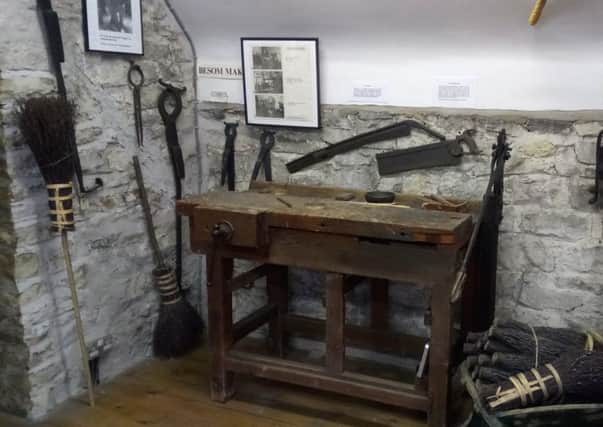Making a clean sweep with a traditional besom


These were often made of birch and so the craft was particularly strong in areas where there were birch coppices. In some parts of the country birch was substituted with heather.
The abundant heather on the North Yorkshire Moors provided a good source of material for making besoms. In Pickering, there were a number of small workshops making yard and furnace brooms, giving the town the nickname of ‘Besomshire’.
Advertisement
Hide AdAdvertisement
Hide AdA number of heather brooms made by Alfred Skaife of Crofts Head are on display at the Beck Isle Museum in Pickering. These were made between 1896 and 1944 and were intended for steel mills in Liverpool but were later sold to farmers at Seamer and Malton cattle market. All of the tools used for making the brooms were made by local blacksmith Frank Mintoft of Eastgate, Pickering, such as the ‘nippers’ pictured.
In order to make a besom, birchwood was stored during the winter to dry out until the twigs are hard but pliant. If used too soon, the finished besom will be too brittle.
The head was made by rolling together long twigs and then a bundle of shorter twigs wrapped around them. These would be bound together and a handle (usually hazel) was passed through the middle. The head would be trimmed to the desired length before the besom was finished. The making of besoms is now a declining heritage craft.
A small display about besom making can be seen at the Beck Isle Museum in Pickering.
The museum is open daily from 10am-4pm until the November 24.
For more information about what’s on at the museum please visit www.beckislemuseum.org.uk or call 01751 473653.